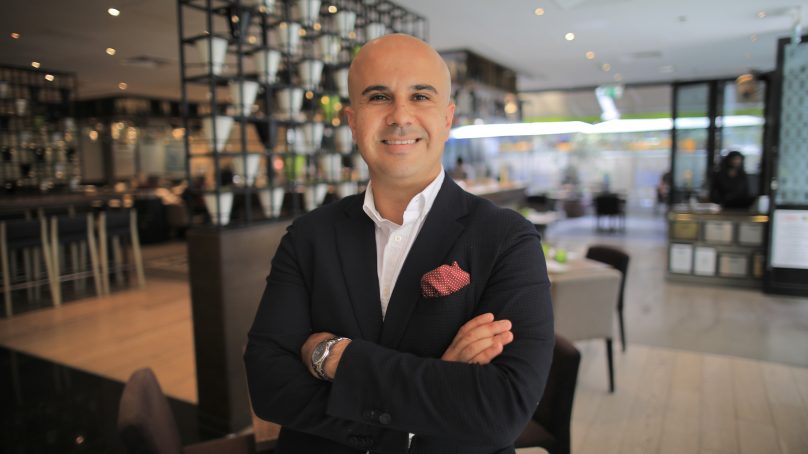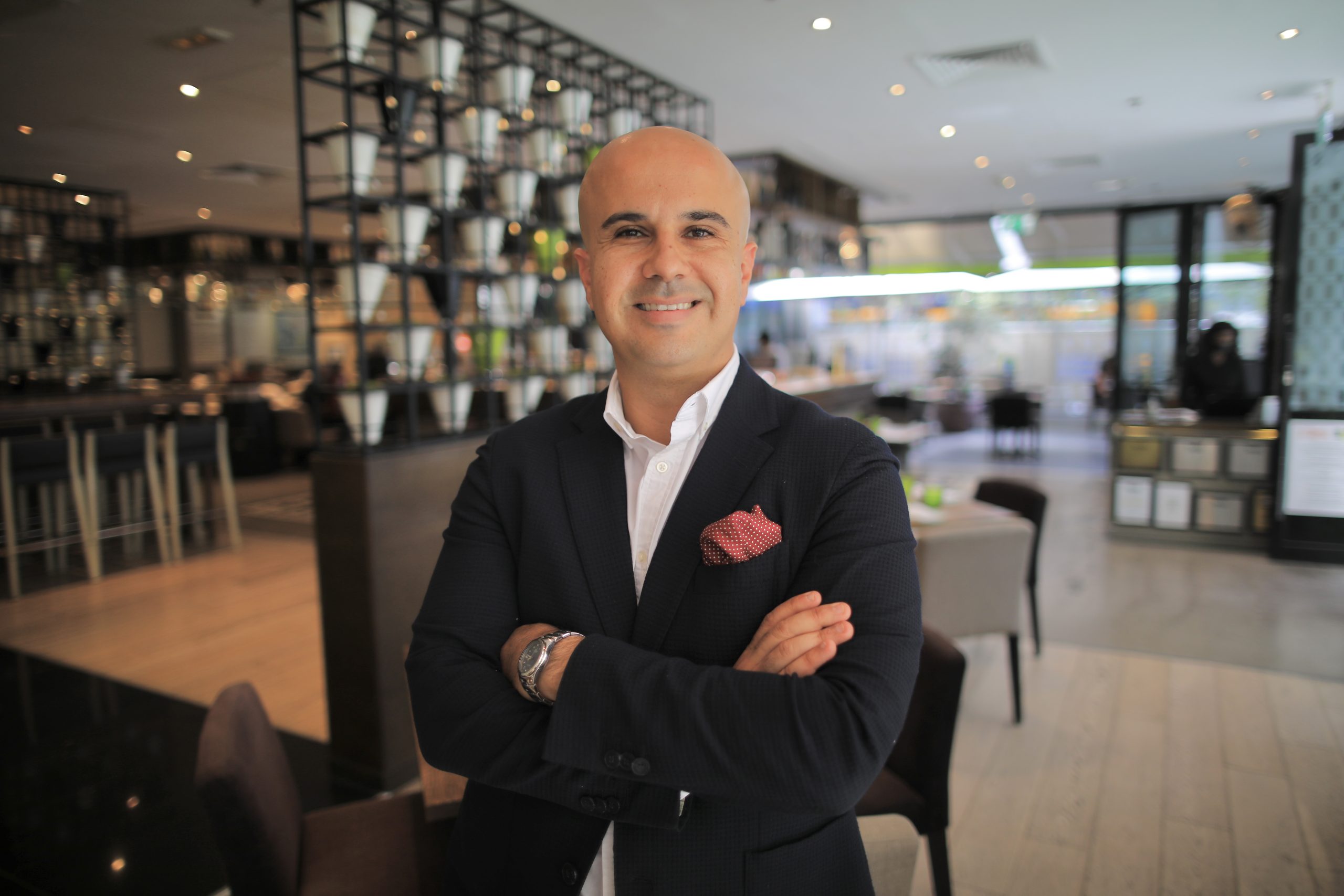Omar Shihab, founder and chief sustainability officer of BOCA restaurant, is a versatile professional, who has taken on various roles in the hospitality industry. He has led a team of skilled chefs, managers, designers and experts to create exceptional hospitality concepts in the Gulf. A passionate advocate for sustainability, local sourcing and innovative dining experiences, Shihab has introduced several sustainability initiatives at BOCA, including waste reduction and local sourcing. He has been recognized for his efforts, winning the Gault&Millau UAE 2022 Sustainability Champion award, and is also an advisor to the UAE Restaurant Group and represents Food Made Good UAE, Thriving Solutions and Azraq.
What steps are you taking to reduce food waste in your restaurant?
Reducing waste in restaurants is crucial for both ethical and environmental reasons, and it can also lead to significant cost savings, which is why many restaurants and hotels in the UAE are implementing waste reduction strategies. However, the restaurant industry has a long way to go.
At BOCA, we are committed to actively tackling waste, as it contributed to 5 percent of our total carbon emissions in 2021, according to our latest carbon emission figures. We have formalized the role of a waste officer to ensure proper waste separation and measurement across six categories. After measuring our waste, we focused on reducing the largest categories of waste by weight and carbon emissions, such as used cooking oil, glass and organic waste.
We maximize ingredient utilization in our dishes; for example, skins are used for seasoning, cheeses are made from short expiry milk, trimmings are turned into side dishes, vegetable wastewater used in cocktails and syrups made from leftover pulp are used as a garnish. We have incorporated these practices subtly into our menus.
In addition, we have an adaptable inventory system critical to minimizing waste, which we complement with composting locally. Our friends at The Waste Lab collect all our organic waste at the end of each day. They diverted 1,369 kgs of waste from landfills in the last month alone, preventing an estimated 1,573ppm in carbon dioxide emissions and creating 18 kg of compost.
Furthermore, we dispose our used cooking oil through Neutral Fuels, which is also a significant diversion from landfills.
By communicating our waste reduction efforts through smart menu copyrighting, we hope to reduce food waste and mitigate its impact on the environment, including greenhouse gas emissions.
Do you source your ingredients locally?
Sustainability is the foundation on which BOCA is built. We believe in the local creative minds and set out to create a modern, mindful establishment that is “future ready” and can compete with any world-class concept. We prioritize sourcing seafood from the Arabian Gulf and the Gulf of Oman, promoting local produce, reducing our carbon footprint and supporting local fishermen. We realized our impact on the environment and began to evolve our sustainability efforts. Today, our restaurant stands on five sustainability pillars: championing local produce, proactive and conscious waste management, valuing resources, reporting carbon emissions and sustainability ratings and sustainability for our community.
Championing local produce has always been our main priority. We showcase the richness of local produce, source directly from fishermen in Dubai’s Waterfront Fish & Vegetables Market and work with local organic and hydroponic farms in Abu Dhabi, Al Ain and the northern Emirates. We source up to 80 percent of our fish and seafood locally or regionally, while up to 40 percent of our fruits and vegetables are from local and regional farmers and producers. Our menu features the UAE’s local oysters, Dibba Bay and UAE’s native desert plants. We developed our own illustrated guide to highlight the best of local and homemade produce.
In line with our sustainability efforts, BOCA’s procurement policy formalizes and standardizes our purchasing standards and practices. We prioritize ingredients grown locally, followed by regional produce, and ensure traceability and fair payment to everyone involved in the procurement process.
Which sustainable practices do you have in place for energy and water conservation?
The first step is to place common practices of energy savings in place, which can be as simple as switching the lights off when we leave the restaurant. The second is purchasing or replacing existing equipment and fixtures with low-energy consumption ones and making sure equipment is maintained to avoid energy loss.
In November 2021, we committed to using 100 percent renewable energy via the solar power generated by the Mohammed bin Rashid Al Maktoum Solar Park.
Furthermore, with the help of Element Six Consultancy, we obtained international renewable energy certificates from DEWA’s Mohammed bin Rashid Al Maktoum Solar Park, allowing us to use 100 percent clean energy. By purchasing and redeeming these certificates, we can genuinely declare that we are powered by renewable energy.
This purchase has helped us reduce approximately 75 tons of carbon dioxide emissions, resulting in an almost 20 percent decrease in our overall carbon footprint, as determined by our carbon footprint calculations.
At BOCA, we are devoted to investing in the future and supporting the UAE’s 2030 greenhouse gas emissions reduction goals, rather than solely focusing on the bottom line. Achieving a 20 percent reduction in our carbon footprint was a remarkable start for us, and we look forward to doing more to help our planet.
What are the greatest challenges you’re facing?
Over the past year, we’ve been on a mission to share our sustainable practices locally, regionally and globally. I’ve had the privilege of participating in circularity workshops with the UAE government, advising and collaborating with UAE Restaurants Group, Azraq, Thriving Solutions and partnering with Food Made Good and the Sustainable Restaurant Association. Throughout it all, I’ve been managing BOCA and advancing our sustainability agenda. It’s been a challenging yet rewarding experience, and I’m proud of the progress we’ve made.
However, we’ve faced our fair share of obstacles and learned valuable lessons along the way. Here are a few areas where we’re continuously refining and improving:
Our waste management practices need constant improvement and monitoring, despite having formal processes and a dedicated Waste Officer role. We’re constantly correcting and directing ourselves to minimize waste across all categories.
- We’re committed to improving gender diversity among our staff, as women currently make up less than 40 percent of our team.
- The restaurant business in the city is undergoing intense competition and a shift in customer demand. We must continue pivoting and evolving our offerings to meet the demand for experiential dining and nightlife.
- Managing a public-facing role in the restaurant and a different capacity during traditional business hours is challenging. We recognize that sustainability is a continuous journey, and we don’t have all the answers yet. Transformations take time and effort.















